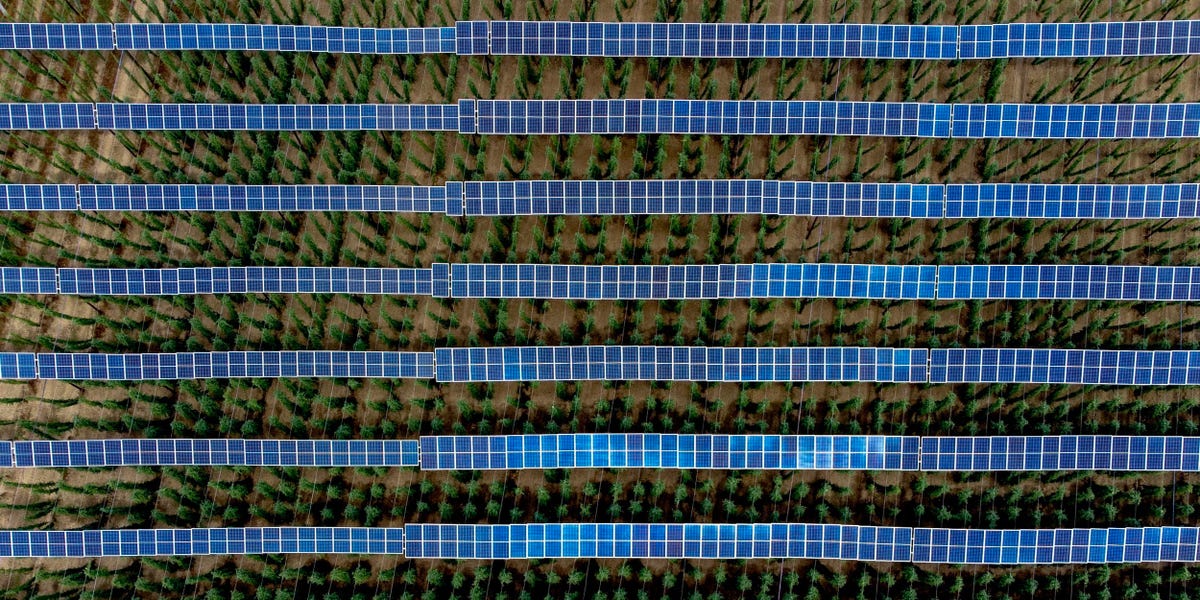Cheap energy being framed as some kind of problem is a great demonstration of why we need a free press that isn’t solely owned by billionaires
They could always just close their coal power plants. Idk why they don’t.
My guess is that in a climate like Germany’s, solar isn’t consistent enough to provide the steady baseline power that coal plants can.
One of the complexities of power infrastructure is that demand must be met instantaneously and exactly. Coal and solar typically occupy different roles in a grid’s power sources. Coal plants are slow to start, but very consistent, so they provide baseline power. Solar is virtually instantaneous, but inconsistent, so it’s better suited to handle the daily fluctuations.
So, in a place like Germany, even in abundance, solar can’t realistically replace coal until we have a good way of storing power to act as a buffer. Of course, nuclear is a fantastic replacement for coal, but we all know how Germany’s politicians feel about it…
Coulnd’t we use solar to pump water into reservoirs, and then let the water flow through hydroelectrical dams when we need the electricity?
[yes](> https://en.wikipedia.org/wiki/Pumped-storage_hydroelectricity)
Taking into account conversion losses and evaporation losses from the exposed water surface, energy recovery of 70–80% or more can be achieved. This technique is currently the most cost-effective means of storing large amounts of electrical energy, but capital costs and the necessity of appropriate geography are critical decision factors in selecting pumped-storage plant sites.
Oh wow, I had no idea this existed. Awesome!
Wait Are these not common where you are?
We have a lot of dams, but I haven’t heard that we were pumping water into the reservoirs.
We also don’t have, like, fields of solar panels, as far as I know. I think it’s too cloudy here. But we have wind turbines, especially in coastal areas.
Well it is a problem, sort of. It’s a failing of the market.
But it does open up another market for energy storage so it will save itself through regular marker forces.
But we absolutely want energy suppliers to make money off solar (over a year) or they will simply stop building more of it. I’m not sure if the German state is losing money on this though, in which case they absolutely need to build more storage.
I’m getting really worried about how energy is going to be generated in winter once solar and batteries completely dominate energy production in the summer.
It gets even more absurd. The southern states blocked building large power lines to transport cheap wind energy south. Now they struggle because the chea renewable energy cannot go there. So while there is plenty of renewables in the north the south still runs coal plants to provide local energy. But then the people in the north have to pay for “network fees” because the South couldnt take their energy.
Because of this it was suggested to split the German energy market in two, where the south which fought against renewables would have to pay the actual electricity costs instead of leeching of the North that properly build up renewables. This was fought teeth and nails because the South of Germany is like Texas but with an even worse superiority complex.
Physicists are warry about splitting atoms; historians are warry about splitting Germany.
It’s okay, this time it’s a horizontal split, not a vertical one. That makes it okay and completely different.
Yeah there are already a few splits. The Aldi equator, the Weißwurstäquator.
Fuck that title. No such thing as too many solar panels. The only thing that is bad is how the energy is used or if it’s wasted. Free energy should mean algae production which would mean carbon negativity. Negative energy price should mean negative carbon emissions, get on it.
You are right, this is BS.
I recently researched this and Germany’s grid is quite “smart” (the oldest technologies involved, such as DECABIT or VERSACOM over PLC, very much predate the term “smart grid” but whatever) and power plants and households are connected for production and load control. Power plants are required to participate but households can use a load management system for water tank heating (the basic premise is that specific frequency impulses are sent over the power grid for primitive (originally relay-based!) logic in DECABIT meters to switch depending on the assigned device group, and meters count in lower-price mode while the load is activated for a guaranteed number of hours each day; you can manually override the switch for expensive on-demand water heating) and/or HVAC (here, a smart thermostat is usually used that gets real-time energy prices and decides based on its temperature range settings if it saves money to run heating/cooling).
People in Texas apparently hate this (muh freedom), and look how reliable their grid is!
Anyway, solar, unlike coal or nuclear, is absolutely capable of going off-grid if necessary. There is an MPPT system in their inverters that usually works to operate the panels at the optimal voltage & current so that it can suck the most power out of them but it can be overridden to work at below 100% efficiency, or even 0%. This will cause the panels to run with no current draw and get about 20% hotter but they are designed to withstand this. Similarly, wind turbines can be braked, water can be passed outside turbine shafts and so can pressurized steam if you really need to cut production quickly. Still, this is an emergency condition, it is preferred to use pumped hydro (responds in 1 minute, limited capacity) or batteries (respond in seconds, very limited capacity) or lower coal/gas-based production (responds in 3-20 minutes for as long as you wish) or load-side management to regulate the grid, as it wastes no power.
The system is very complex and robust, the frequency (the variable most dependent on production/load balance) only dips below 49.8 Hz about once per a few years (the emergency value that was reached in February 2021 in Texas and can only be sustained for minutes before total blackout is -1% from nominal (49.5 or 59.4, respectively) and has never been touched in Europe’s modern history).
(You’d think it would be voltage what falls in case of too little power but it can be readjusted quite easily with switched transformer taps and, oddly enough, reactive power management (connecting a few capacitor/inductor banks to mains) when necessary, however frequency control is the difficult part.)Free energy should mean algae production
This is a jump I’m not understanding. Do you mean that energy having no cost would mean that the electricity generated can be used to make algae? Or that it’s a byproduct of?
Do you mean that energy having no cost would mean that the electricity generated can be used to make algae?
Yes. Make algae with energy that produces no carbon dioxide = carbon sink.
There’s just no economic incentive to do so. (yet?)
The economic advantage is that our grandchildren might be able to have an economy if we don’t crash and burn this place before we die.
No. That’s like saying the UK has too much wind power because our prices occasionally go negative. What Germany might not have enough of is battery and other storage
Did you know that the best way we currently have to store energy are dams? In most dams you can install a pump to take water and store it higher, then when energy is needed you simply open the turbine.
The problem with dams or pumped storage is it only works in specific places where you have a higher place to put lots of water.
Yep! I suppose we could build a huge Tank or something XD
Decommissioned mines can be used as gravity batteries.
Oh no! Failing from success! /s
Free energy!
The only issue is they have not enough storage capacity for the excess.
That’s a global problem unfortunately.
We do not yet have effective and economical means of storing energy in grid scale quantities that are readily deployable near where that power is consumed.
It’s a huge problem actually, the biggest one facing renewables like solar.
Oh no, it’s too bad Germany isn’t surrounded by other countries it could sell that excess power to!
Germany has lots of grid connections to other countries, and are pretty surely selling off what they can get rid of, but France has nuclear, Sweden and Norway have hydro, Denmark has wind and solar. All these markets are also currently negative. We’ve had negative prices for almost 14 days now, but somehow they went into plus today here in Denmark, although we (personally) had lots of sun and could sell 61,9 kWh from our solar panels.
I just checked, and the prices are near identical between: Germany, Belgium, Poland, Austria, France, Denmark, Norway, Sweden, Estonia, Latvia and Lithuania.
Oh no, it’s too bad Germany isn’t surrounded by other countries it could sell that excess power to!Your sarcasm is misplaced.
I mean… Good? Shouldn’t that be the goal, electricity at no cost to the people?
This is the entire reason why countries like China are investing hard into ultra-high-voltage transmission lines.
While regions like Xinjiang and Inner Mongolia have immense wind and solar potential, getting that electricity to the population centers is challenging.
Selling electricity to Eastern Europe, to Northern Africa, hell even to the Middle East is an option if Europe is truly operating an electricity surplus.
Europe and the US already have UHV transmission lines. Grid interconnects and long-distance transmission have voltage between 500kV-1,000kV
China is still developing its national grid.
Look at a map of the European power grid: https://www.researchgate.net/figure/Map-of-European-high-voltage-transmission-grid-Source-Adapted-from-GENI-2011_fig1_281127145
Now repeat your claim again, but this time be serious.












